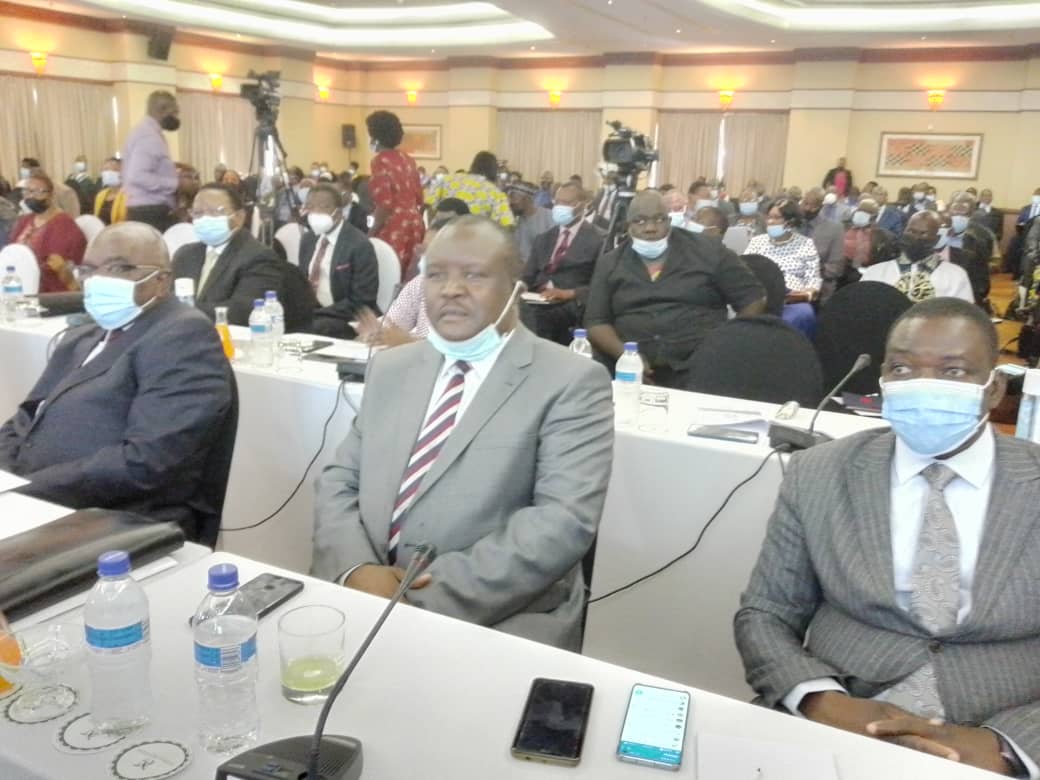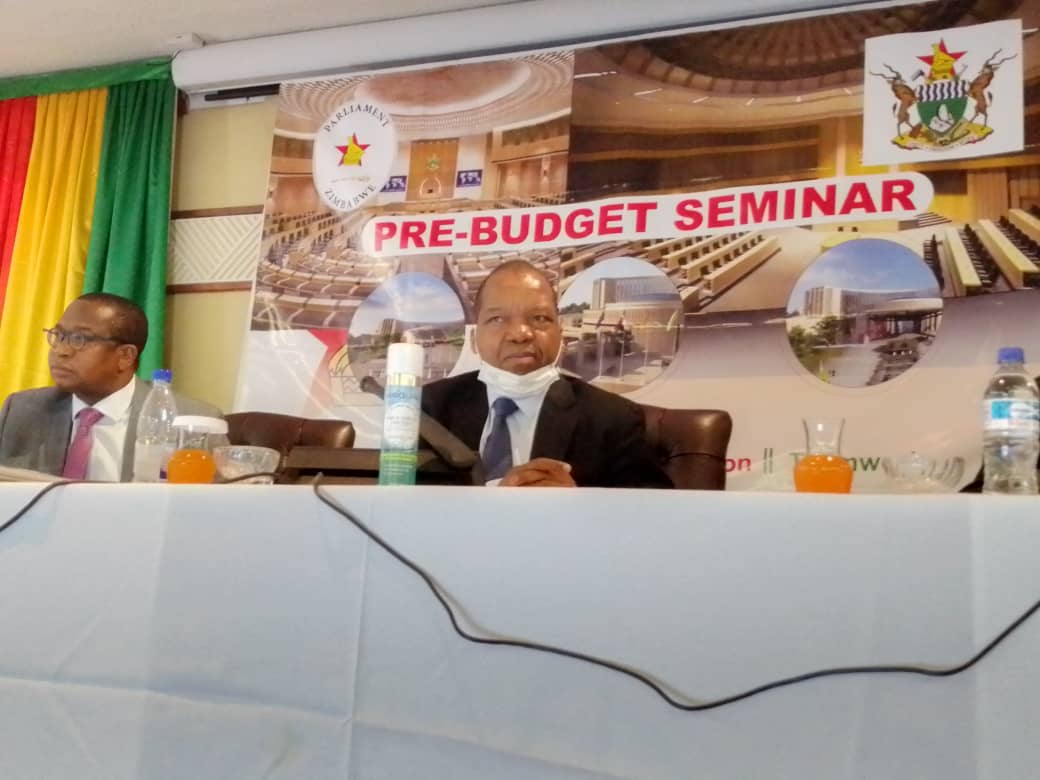|
Getting your Trinity Audio player ready…
|
Parliament’s pre-budget seminar for 2022 kicked off in the resort town of Victoria Falls today with the Minister of Finance, Professor Mthuli Ncube predicting that the economy is on a growth trajectory with the gross domestic product (GDP) still projected to grow by 7.8% in 2021, attributed to favourable rainfall season, higher international mineral commodity prices and stable macroeconomic environment.

Prof Ncube said the global economy is now projected to grow by 5.9 % in 2021, slightly lower than the July growth projection owing to heightened risks from the COVID-19, especially for low-income developing countries as well as supply disruptions for the advanced economies.
However, he noted that GDP growth projections for the year 2022 remain unchanged at 4.9% and is expected to average of 3.3% over the medium term. Prospects for emerging markets and developing economies were slightly revised upwards to 6.4% in 2021, and slightly downwards to 5.1% for 2022. The Sub-Sahara region growth prospects were increased by 0.3% from the July update to 3.7% in October 2021, whilst it declined by the same margin for 2022 to 3.8%.
The 2022 Pre-Budget Seminar is held under the theme “Reinforcing Sustainable Economic Recovery and Resilience.”
The Speaker of Parliament, Hon Jacob Mudenda said the seminar comes at an opportune time when globally, nations are still battling with the impact of the deadly COVID-19 pandemic which continues to stifle the socio-economic growth and development of countries and negatively disrupt the livelihoods of millions of people.
Hon Mudenda urged parliamentarians to come up with a broad-based Budget framework that will reinforce sustainable economic recovery in a manner resilient enough so as to propel Zimbabwe to build back better in the next financial year.
“In that context, Parliament and the Executive are enjoined to craft the 2022 Budget which is people-centred and inspires economic hope against the vagaries of the threatening widening gap between the auction system foreign currency rates and the galloping parallel market premium whose attendant impact is price instabilities,” Hon Mudenda said.
The Pre-Budget Seminar has a number of objectives among them the need to review the macro-economic performance of the current 2021 National Budget as an inescapable point of departure to crafting the 2022 national budget processes, especially as to whether or not the 2021 Budget performed to expectation in terms of the actual disbursements.
It also intends to discuss the 2022 fiscal framework, particularly revenue-raising measures, expenditure targets, economic outlook, and the key 2022 National Budget assumptions which must anchor the priorities as per the findings of the Budget and Finance Committee as well as those of the Expanded SDGs Committee.
Hon Mudenda called for constructive and collaborative engagement with the Executive in shaping national priorities through the Parliamentary Committees’ outcomes of the Pre-Budget Public Consultations so that Ministries and Statutory Organs of the State, inclusive of the Auditor General’s Office as well as Independent Commissions are fully appraised.
“Ensure that the 2022 National Budget is a pro-poor Budget that prioritises the needs and aspirations of the marginalised groups (i.e women, youths, children, and people living with disabilities) and gender mainstreaming. It is also important to understand how the Monetary Policy and the Fiscal Policy must positively interface and speak to each other during the implementation of the 2022 National Budget. Any discord between these two pivotal policies will result in misaligned national economic policies,” Hon Mudenda added.
In his address, Dr. John Mangudya, the Governor of the Reserve Bank of Zimbabwe alluded to key fundamentals for price and exchange rate stabilisation.
“There are a number of economic fundamentals in place to support a stable exchange rate. We have strong foreign currency receipts, with more than US$6 billion having been received this year up to the end of September compared to US$4.4 billion for 2020 for the same period. This is coupled with strong foreign currency receipts reflected in the current account surplus of US$1 billion expected this year and FCA deposits around US1.7 billion.
“Money supply has remained under control with liquid financial assets in the local currency equivalent to US$1 billion against foreign currency holdings of about USD$4.5 billion, comprising US$1.2 billion reserves under RBZ; US$1.7 billion FCA deposits in the banking sector; and an estimated US$1.5 billion circulating in the economy. There is no recourse to central bank financing of the deficit since last year due to continued fiscal suitability,” Dr. Mangudya said.
Overall, Dr. Mangudya said complementary monetary and fiscal policy measures have put the economy on a sustainable growth trajectory. He said key indicators of sound macroeconomic fundamentals in the domestic context include the increase in the local production of goods and services on account of reduced imports due to global lockdowns.
In equal measure, he noted an increase in the industrial capacity utilization from 47% in 2020 to the projected 61% this year. He paid tribute to the resilient financial sector as evidenced by well-capitalized and profitable banking institutions. There was also an increase in foreign currency receipts to over, 8.5 billion in 2021 including diaspora remittances.
Dr. Mangudya said there is fiscal and external sustainability as evidenced by the achievement of the twin budget and current account surpluses. He said this, together with the good performance of the agriculture, mining and manufacturing sectors will lead the country to grow by more than 7% in 2021 and sustainably above 5% in the outlook period.
